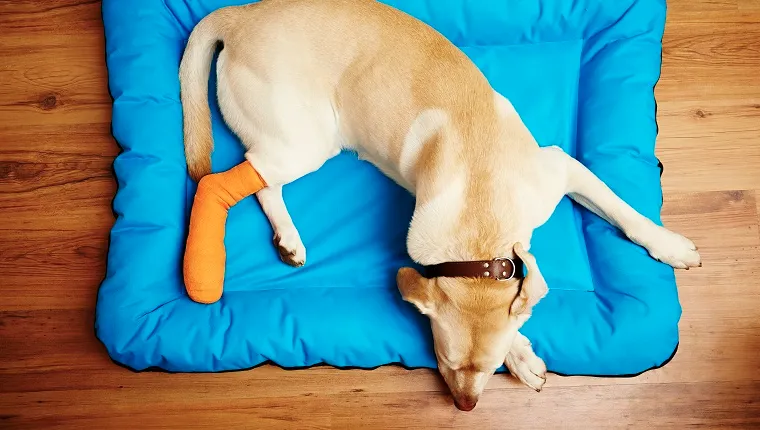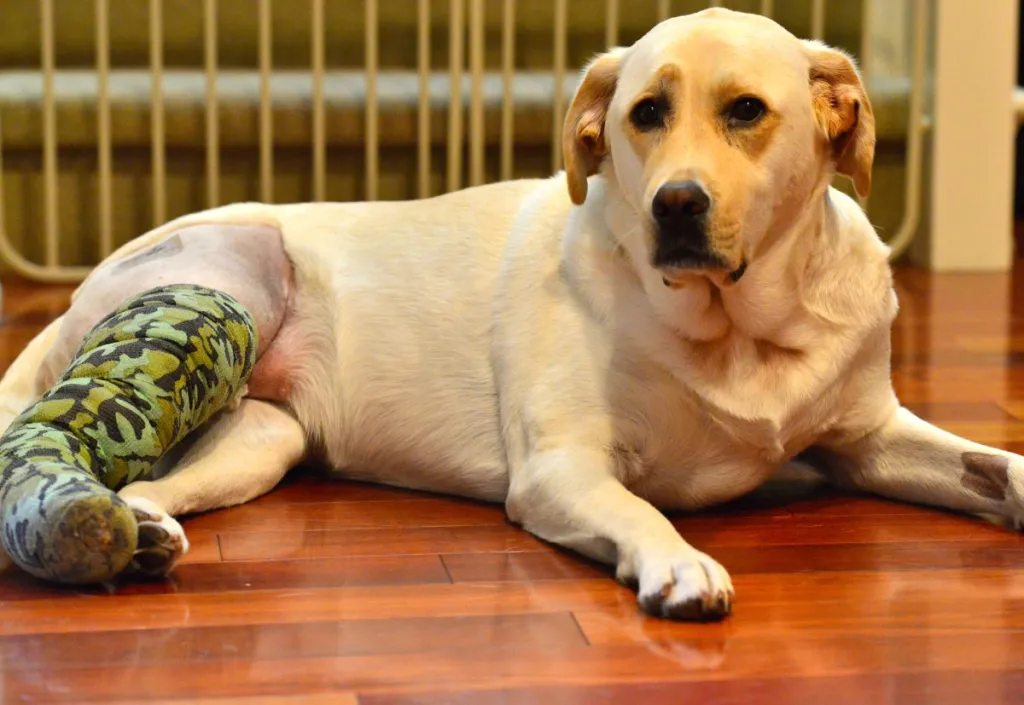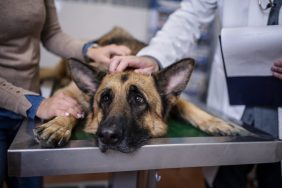Torn ligaments in dogs happen when the ligament that connects the top and bottom parts of the bones surrounding the knee, known as the cranial cruciate ligament and often abbreviated to CCL, becomes torn. This can often bring on mobility issues that affect the back legs, along with arthritis and pain. In dogs, CCL injuries are much like an anterior cruciate ligament — or ACL — injury in humans.
Larger dogs and overweight dogs are often more prone to suffering from these tears. Certain dog breeds are more likely to experience a torn CCL than others, including the Newfoundland, Labrador Retriever, and Saint Bernard breeds.
If you see signs that your dog might have a torn CCL, then you must consult your veterinarian for a proper diagnosis and course of treatment. Here’s what you should know about the symptoms, causes, and treatments for torn ligaments in dogs.
Symptoms of torn ligaments in dogs
Dogs with a torn CCL often present with some or all of the following symptoms:
- Difficulty walking
- Being less active
- A swelling around the shin
- Walking with a visible limp
- Being unable to jump or climb stairs
Causes of torn ligaments in dogs

Torn cranial cruciate ligaments in dogs can be caused by a number of issues and circumstances.
Some of the most common factors include:
- Being overweight
- The ligament wearing away
- Breed disposition to the condition
Treatments for torn cranial cruciate ligaments (CCL) in dogs
If your vet suspects your dog has a CCL or torn ligament, they’ll carry out a full physical examination. They’ll also ask you about your dog’s recent range of mobility and willingness to play and exercise. Vets almost always use an X-ray to confirm a torn cranial cruciate ligament in dogs.
If your vet confirms their diagnosis, they might suggest surgery as a way to treat the issue. In some cases, vets may also prescribe medication, including anti-inflammatory drugs.
If canine obesity contributes to a dog’s torn CCL, the vet will also recommend lifestyle changes. These will involve gently introducing more exercise into the dog’s daily routine along with switching to a healthier diet designed to promote weight loss.









